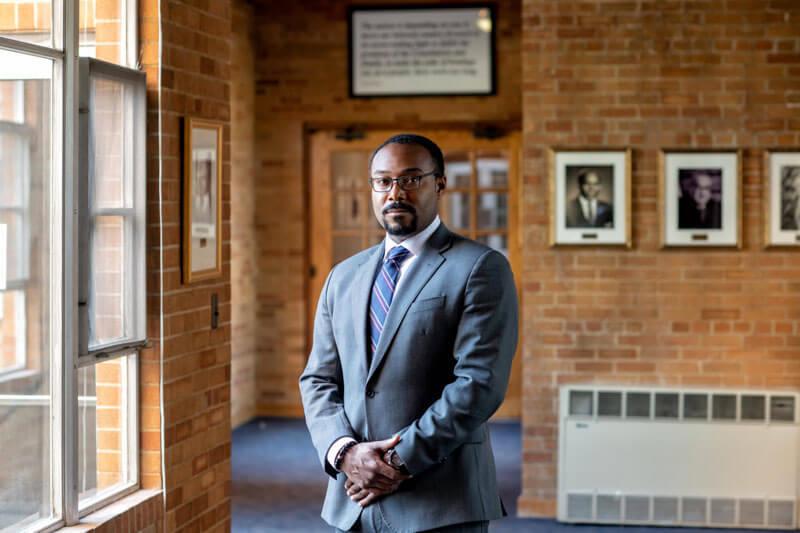Justin Hansford can tell you how Obama’s supporters became complacent after his historic election – and how, after Biden’s election, that’s no longer the case.
As executive director of the Thurgood Marshall Civil Rights Center, he’s well aware of the factors that have shifted the political landscape in the past 12 years and the legal changes that still need to be made. He and his team work tirelessly on pro bono cases, including reparations campaigns as well as mass incarceration and First Amendment cases in New York and Washington, D.C. for 2020’s curfews.
How does Biden’s presidency compare to, say, Obama’s?
The Biden administration is the most outspoken in American history on racial justice. That includes President Obama, who said on record that he would have faced backlash for being as outspoken on race as Biden is now. Let’s hope that Biden’s words will be followed with action.
What happened between Obama’s election and Biden’s election?
I worked on the campaign in 2008. The energy then was unmatched. We were literally crying with joy when Obama won. When Biden won, we were crying with relief. The energy is different now.
In 2008, I thought Obama was basically going to lead a revolution in racial justice. That’s not what happened. Now we know that we constantly have to agitate to push elected officials to work on our agenda, even when it’s our own candidate who is in office.
In between elections, just following politics in the news and complaining on social media won’t cut it. Our enthusiasm for elections only makes sense if the outcomes improve our everyday lives. And that only happens with our follow-up.
If Obama didn’t create the change in 2020, what did?
It had more to do with George Floyd’s killing. These were the largest protests we’ve ever had in American history. [People] had never taken to the streets in those numbers before.
Then we moved from protest to politics in the Fall. In Georgia, thanks to Stacey Abrams, the shift from the streets to the polls got us some big wins. The movement matured in front of our very eyes.
How will the two main political parties keep up?
The corporate-centrist view of politics will be difficult to maintain in 2021 – for Republicans and Democrats. There’s just not widespread energy behind it. Republicans shifted from corporate centris[m] to just Trumpism.
The Democrats are going to have to evolve or face a war within the party, and that could easily allow Trump to reemerge. It’s a big risk if they don’t change.
What did we learn from Trump’s presidency?
Constitutional theorists and scholars are saying that we need to reimagine our governmental structure. Do we have enough controls in place? Congress consistently has been frozen by partisanship to a standstill and unable to fund itself.
Donald Trump showed all the different flaws of the presidency. Are the courts going to save us? The Constitution? Big changes are necessary.
How does the current political climate affect the Thurgood Marshall Civil Rights Center?
This Summer, we have five attorneys and at least three law student interns on our team, all funded by grants. What the climate hasn’t changed is our principles – we always say, “We use our head, our hands and our hearts for all of our work.”
All of our projects are in partnership with the grassroots. That’s where our heart is, connecting with the people. All of our work also involves our immersion in the scholarship around civil rights and race and justice.
We’re on the cutting edge of the most current thinking, using our heads as we engage. And we get our hands dirty, using lawsuits and legal expertise to make change a reality.
Article ID: 306




